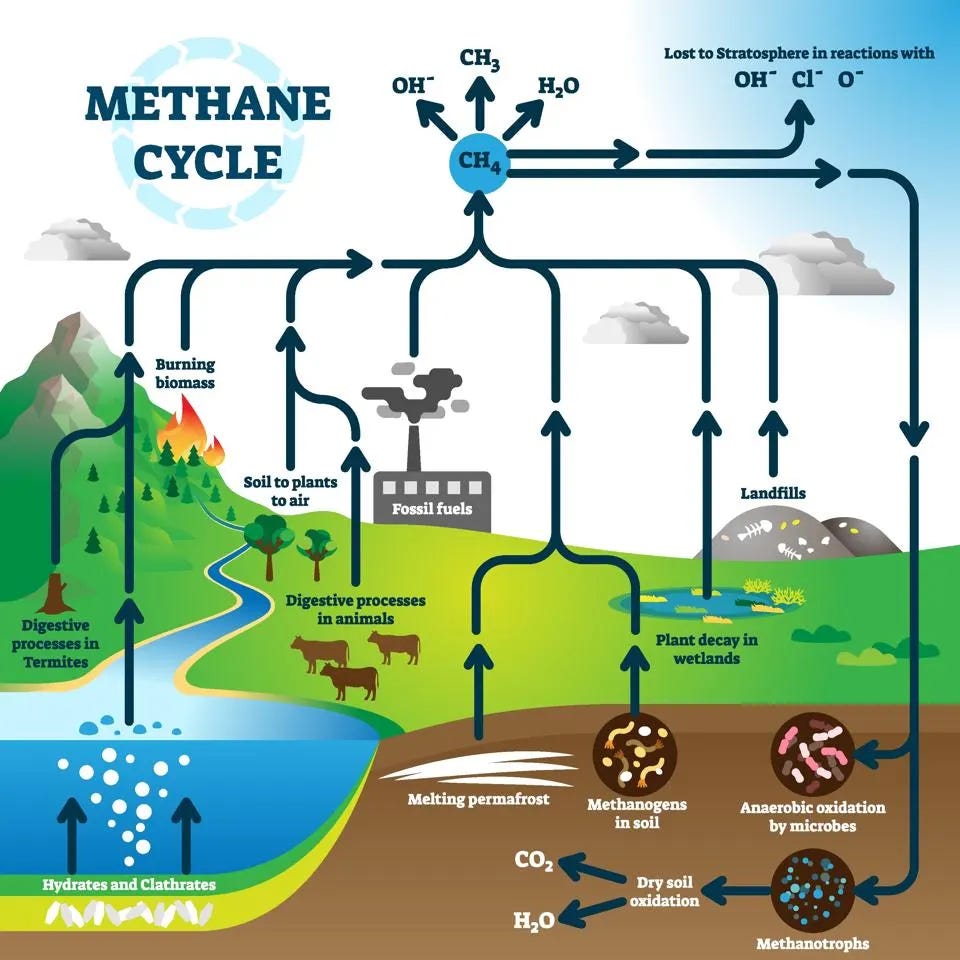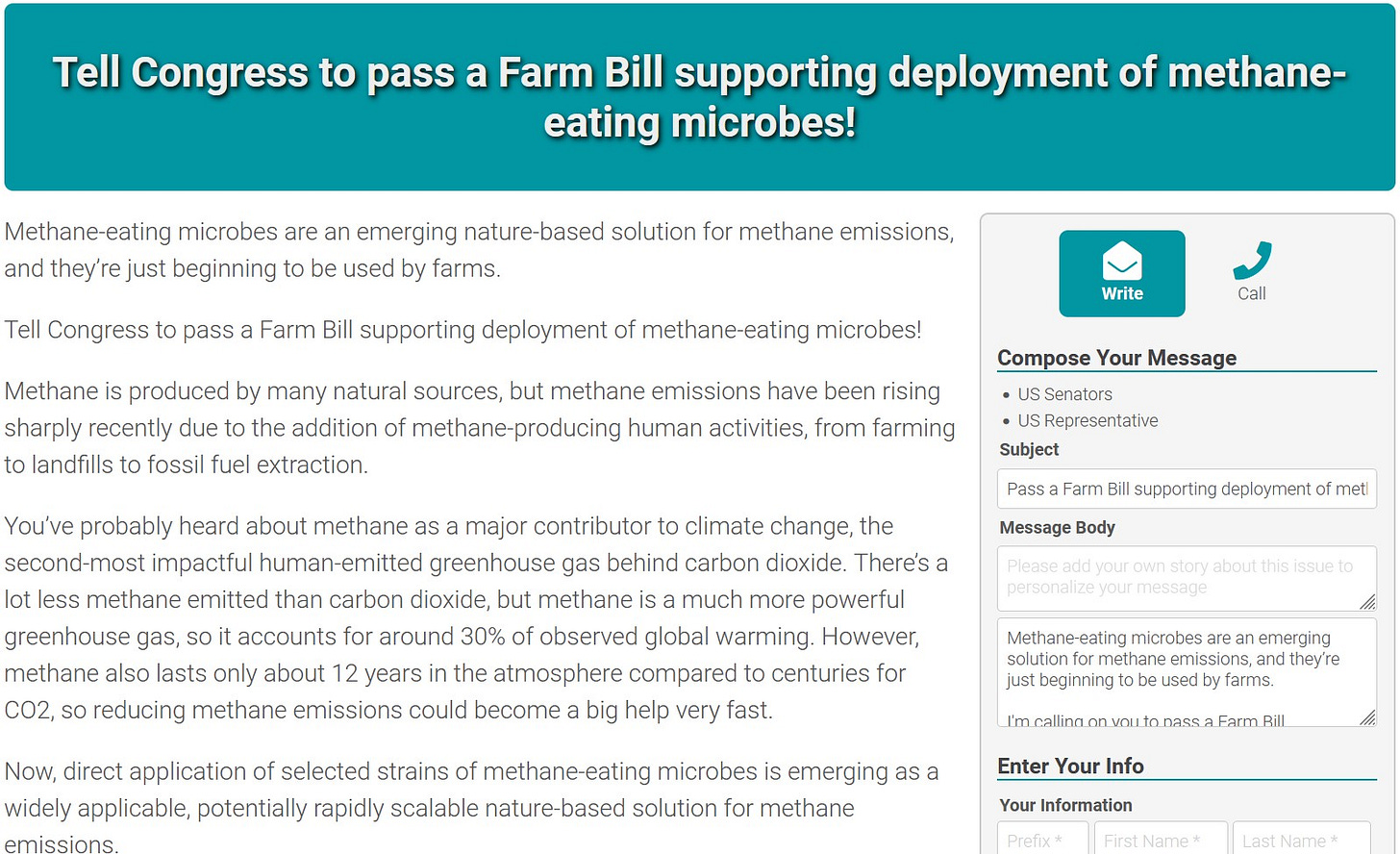Your Daily Dose of Climate Hope: September 6, 2024
Support deployment of methane-eating microorganisms in the Farm Bill!
Methane-eating microbes are an emerging nature-based solution for methane emissions, and they’re just beginning to be used by farms.
Tell Congress to pass a Farm Bill supporting deployment of methane-eating microbes!
Touch or scan the QR code below to take today’s action in the app and earn trees!
Or take action on the Internet:
Reasons For Hope

You’ve probably heard about methane as a major contributor to climate change, the second-most impactful human-emitted greenhouse gas behind carbon dioxide. There’s a lot less methane emitted than carbon dioxide, but methane is a much more powerful greenhouse gas, so it accounts for around 30% of observed global warming. However, methane also lasts only about 12 years in the atmosphere compared to centuries for CO2, so reducing methane emissions could become a big help very fast.
Now, direct application of selected strains of methane-eating microbes is emerging as a widely applicable, potentially rapidly scalable nature-based solution for methane emissions.
A startup called Windfall Bio is selling carefully selected strains of methanotrophs (branded as “mems” for “methane-eating microbes”) which can essentially “eat” methane, like how plants eat carbon dioxide, excreting nitrogen and carbon compounds that can be useful as fertilizer.
“We provide those packets of mems, and then whoever has access to that methane can capture the methane themselves, turn it into fertilizer and create the value from it.”
-Josh Silverman, CEO of Windfall Bio.
Mems can be used by any methane-producing operation from farmers to landfills, and this approach is already gaining some traction. Whole Foods is already planning a pilot program to use Windfall Bio’s mems at their dairy suppliers.
You’ve probably heard already that Congress is still discussing the upcoming Farm Bill, a huge investment in American agriculture (the U.S. spends an average of $648 billion per year on Farm Bill programs) that’s up for renewal for the first time since 2018. As with our previous Farm Bill-related policy actions on climate-resilient crops and methane-reducing vaccines for cattle, targeted methane-eating microbes are a brand-new invention and not really on the political radar screen yet. That means there’s a really great opportunity here to tell Congress to use the Farm Bill to help promote their research and development!







